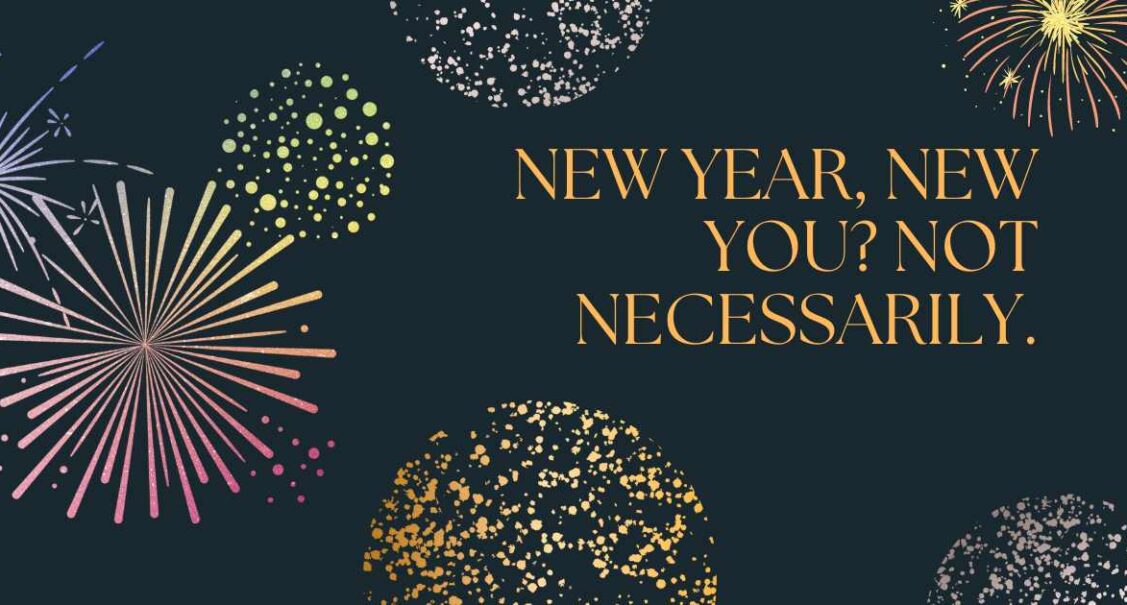This time of year, it’s easy to get wrapped up in the idea that you need to make yourself better somehow. All this talk of resolutions and improvement in the new year. The reality is, making resolutions isn’t an obligation, and it certainly isn’t for everyone.
It is believed that the ancient Babylonians were the first people to make New Year’s resolutions around 4,000 years ago. They were also the first to hold recorded celebrations in honour of the new year. During this time, the Babylonians would make promises to the gods to pay their debts and return any objects they borrowed. In ancient Rome, the month of January was named for the two-faced god, Janus, whose spirit represented doorways, had significance to the Romans. They believed that Janus looked back into the previous year and ahead to the future, so the Romans offered sacrifices to the god and made promises of better conduct in the coming year (1).
Later, in the days of the early Christians, the first day of the new year became the traditional occasion for thinking about past errors and resolving to do better in the future (1). Nowadays, New Year’s resolutions are not typically secular, and most people make promises to themselves that focus on self-improvement.
So yes, the practice of self-improvement in the new year goes back thousands of years, but it doesn’t actually mean it’s a successful idea. In fact, in 2021 only 31% of Britons kept all the resolutions they made for that year (2).
Doing your best is enough
Resolutions can be a fun way to start the new year; to challenge yourself, to try new things, or to kick start some old habits once more. But if they start to create unnecessary pressure then remember that all we can do is our best each day. Doing your best can mean many different things. For some, it’s staying in bed all day when you need to, for others simply taking a shower is a sign of a productive day. For some people, doing their best means waking up early to exercise before work. If you’re putting yourself to a new challenge then all that matters is that you try your best, no matter what that looks like. And if you only make a few days or a week then be proud of that achievement!
Resolutions, while idealistic, can be harmful for some. You may find yourself feeling guilty if you can’t achieve the goals you have set for yourself which can affect your mental and physical health. For those that struggle, don’t forget that resolutions don’t make you a better person, you are enough just as you are.
That’s not to say you shouldn’t make any resolutions. If you feel comfortable setting realistic goals for the new year, that’s great. But don’t get carried away, and remember that resolutions aren’t necessary. If you find yourself getting lost in the resolution shuffle, just remember:



